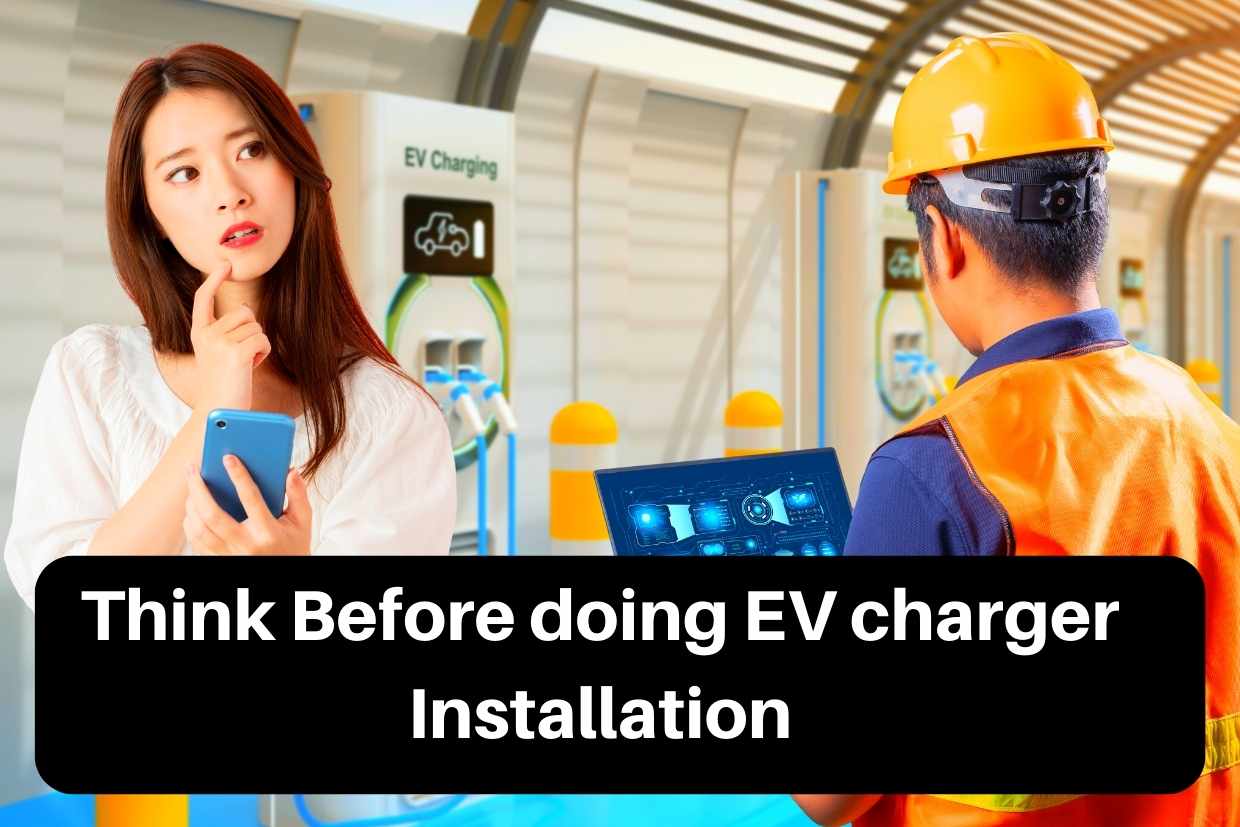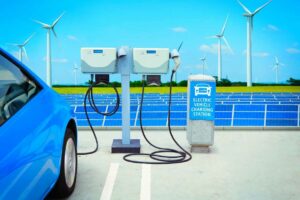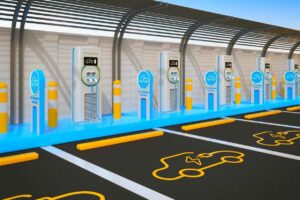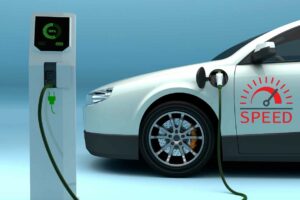Are you thinking about buying an electric vehicle? But why? You might be thinking that the emissions produced by cars driven by gasoline are one factor in the warming of the planet; therefore, it’s a good idea to drive an electric vehicle. At the same time, it could also be because it’s gradually becoming easier in Singapore for people to afford electric automobiles.
But here, we have a new issue to address. Once we have an EV, we will need to charge it. So, what will it take, and how much will it cost, to set up your house for an electric vehicle?
What should I purchase first : Is it an electric vehicle, or is it a charger.
No, you don’t have to purchase a charger before an electric vehicle. Nearly every electric vehicle on the market today comes standard with what is known as a Level 1 charger. You can easily connect level 1 chargers to any conventional electrical outlet. However, even though they need little in the way of work or expense, they charge a car’s battery at a very slow rate. An overnight charge may allow you to add many miles to your range.
You should also note down that it can take more than a day to charge a battery that has been completely discharged fully. It would help if you also made sure that the electrical system in your home can manage the increased load that comes with charging a car in addition to other electrical demands.
Understand how the EV charger works.
For those who don’t know, a home charging station is also referred to as “electric vehicle supply equipment”. You should know that an EVSE does not charge your vehicle. Instead, the station supplies the standard household alternating electricity to the onboard charger of your vehicle. The onboard charger then transforms the alternating current into a direct current. Then it is stored in the electric vehicle’s battery.
There are numerous varieties of chargers, each of which is capable of supporting a particular degree and speed of charging. When choosing an EV charger, you should not overestimate the demand. EV owners must investigate their available choices to ensure that they have the necessary amount of electricity in their homes.
The bottom line is that it is in your best interest to have at least a basic understanding of any technology’s operation before bringing it into your house and putting it to use.
Choose from the different levels of EV chargers.
At the point of writing this article, three different tiers of chargers are now available on the market. As experts, we can safely say that Level 1 and Level 2 chargers are the most suitable options for use in domestic settings. Level 3 chargers, on the other hand, are very high-voltage, rapid-charging stations. They are high in price and aren’t ideally suited for use in the home. Level 3 chargers are also known as superchargers. At the same time, it should be noted that using a Level 3 charger on an electric vehicle’s battery on a consistent basis might be harmful to the battery.
Let’s talk about a Level 1 electric vehicle charger. Because it can be connected to a standard electrical outlet that operates at 120 volts, a Level 1 charger is an excellent choice for use in the house. It makes it very easy to plug in and charge your EV at home, but the charging process might take a lot longer because the voltage level is lower. This type of charger takes at least 20 hours for a completely electric vehicle and at least 7 hours for a hybrid. These are ideal for boosting your battery, but they won’t necessarily give it a full charge as a standard charger would.
What should you know about a Level 2 charger? A Level 2 charger is a station that operates at 240 volts and can deliver an output of up to 32 amps. It means that a Level 2 charger can offer a full charge approximately five times faster than a Level 1 charger.
Level 2 chargers are often what people discuss when they talk about putting in an electric vehicle (EV) charging station in their homes. Why is that? You can have many additional miles of range by plugging your EV in for an hour and getting the battery fully charged overnight because of the increased power of these batteries. These level 2 chargers require a different type of plug. Therefore, you will need to hire an EV charger installation consultant to get advice and install to use one of these chargers.
Before purchasing an EV charging station, it is vital to think about the kind of car you drive, how frequently you drive, how far you travel, and how long you have the battery in your vehicle to be recharged.
What kind of charging speed do you require?
You probably do not need a fast charger.
- If you do not charge your vehicle in the daytime. (You can charge your vehicle overnight)
- If the vehicle you have is a plug-in hybrid vehicle and it has a range of electricity that is limited.
- If you will not travel very far between the charges.
But, it’s possible that you’ll only find yourself in need of rapid charging during extended travels; this is when you’ll be able to make use of the greater charging speeds offered by the majority of public charging stations.
The vast majority of plug-in hybrids have a restricted electric range. It means that this doesn’t need over 5 hours to be completely charged while using a Level 1 charger. So, the bottom line is that most people who own these vehicles can get their work done, with a Level 1 charging station instead of going for a Level 2 charging station.
Will you use the service of EV charger installation professionals, or will you do it yourself?
When you are considering a home electric vehicle charger, the process of installing the charger is another crucial aspect that you should take into consideration. There are some people who prefer to do those on their own. But, the truth is that a do-it-yourself method may or may not be feasible, depending on the charging station you will install.
Certain charging stations require the assistance of a professional in the installation process. In addition, if you hire a service provider to install your charger for you, an experienced technician will manage everything. That is another advantage of hiring an expert in the industry. It includes ensuring that you have all the essential tools on hand and that your new electric vehicle charging station functions correctly once installed.
Conclusion
Apart from all the factors we discussed in this article, we think that the cost you can bear is also a vital factor. We advise you to consider all the above factors before installing an EV charger and how much can you spend on the whole process. You can contact us if you have more doubts that need to be cleared before installing an EV charging station.







